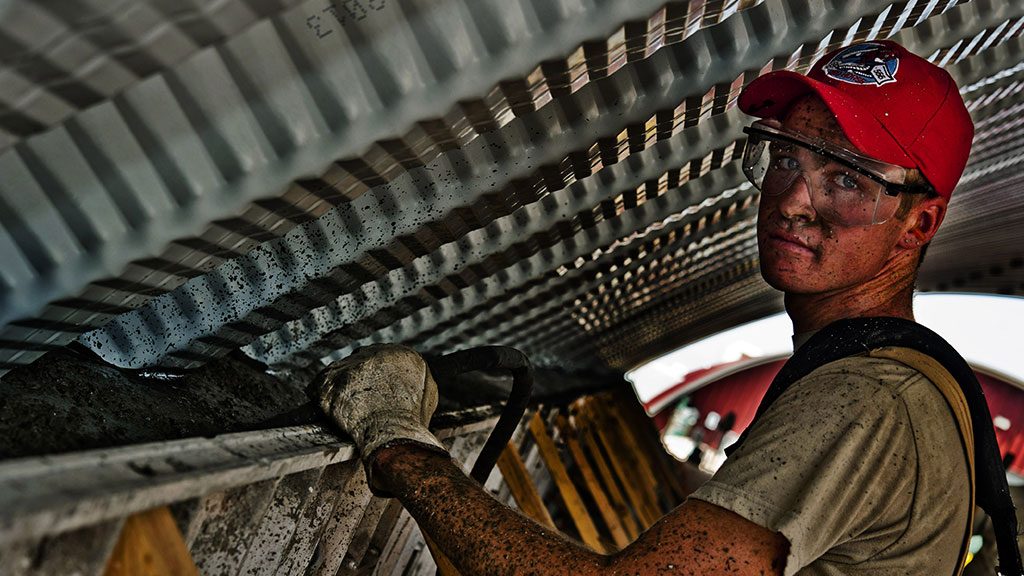Health and safety advocates in the construction sector are preparing Safety Week and Safety Month programming in May mindful of recent disappointing health and safety statistics in the sector as well as future threats.
Walsh Canada vice-president Craig Lesurf is the only Canadian member on the continent-wide Safety Week committee sponsored by the U.S.-based Construction Industry Safety Initiative and the Incident and Injury Free Executive Forum as well as serving as the safety committee chair for the Ontario General Contractors Association (OGCA). He addressed recent numbers showing a spike in deaths in construction and manufacturing in the first few months of this year as well as longer-term trends that indicate despite the best efforts of safety advocates, there were still 905 workplace deaths in Canada in 2016.
The message this year as contractors and associations aim to raise awareness is the need for safe choices.
It’s appropriate, said Lesurf, because making safe choices in everyday situations is the key to keeping workplace injury statistics low.
“When you think about it, the choices we make big or small have a big impact on our own safety and those around us,” he said. “Think of a barricade over a hole on an elevated floor. It’s a practical thing, if you see an opening, stop, do something about it, don’t walk by, don’t pretend it doesn’t exist. Just because you saw it doesn’t mean the guy behind you will see it.”
Lesurf explained Safety Week was expanded into Safety Month by the OGCA because it represented an opportunity to plan special events and raise awareness of policies and programs over a longer period of time, highlighting different messages.
High-profile programming is planned for the first week of Safety Week, May 7 to 11, in four U.S. cities and at the Etobicoke General Hospital jobsite in Toronto.
The Toronto event May 7 will include addresses by reps from Infrastructure Ontario and the League of Champions, Minister of Labour Kevin Flynn, Osler Health vice-president Ann Ford, Lesurf himself and a representative from Buttcon, which is working on a job nearby. A breakfast thanking workers will kick off a week of safety events.
“It’s multi-tiered,” said Lesurf of the event. “We are trying to raise awareness, that is what it is all about.”
Programming has been arranged at worksites across the province with special events such as demonstrations of working with hazmats, confined space entry and fire rescues from dangerous or awkward spaces, said Lesurf. Bringing in product vendors, for example, can help workers and managers keep up to date on the latest health and safety equipment.
“Ten years ago we did not have the same products out there to keep us safe,” he said.
“For example, you have someone say, ‘I know you don’t wear your safety glasses all the time, but here’s a comfortable pair, or one that doesn’t fog up as much, or one that looks cool.’
“Sure it may sound like a small thing, not wearing glasses, but the minute they get something in their eye, they are wishing they were wearing glasses.”
Besides Walsh Canada, other firms and agencies with programming this year are EllisDon, PCL, Defence Construction Canada, the City of Toronto and Infrastructure Ontario, among others. Associations contributing to Safety Month efforts besides the OGCA include the Toronto Construction Association, the Hamilton-Halton Construction Association, the Niagara Construction Association and the Grand Valley Construction Association.
The OGCA is encouraging its members to create programming based on weekly themes. Week one is general safety promotion and publicizing the new OGCA Safety Pass program; week two features a national focus with events across the country; week three highlights safety education with seminars, product discussions, tool box talks and more; and week four focuses on safety stories, “words to live by” discussions and video safety pledges.
Every year brings new safety issues to address, Lesurf noted, and this year’s new threat is the legalization of cannabis. The OGCA board of directors recently passed a motion asking the provincial government to allow contractors the right to conduct random drug tests.
“We all agreed impairment on the jobsite is completely unacceptable, and we agreed we need to do random drug testing to fight it,” said Lesurf. “Just because they are not smoking it on the jobsite doesn’t mean they didn’t do it before or when they left the jobsite for a bit.”











Recent Comments